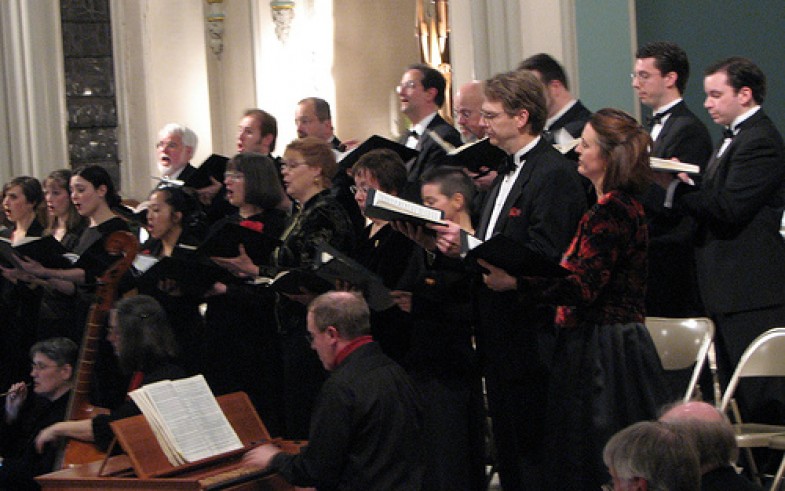A couple of years ago, I ran into a colleague at the Oratorio Singers of Charlotte and Charlotte Symphony’s performance of Handel’s “Messiah”. As we chatted he said he never stands for the “Hallelujah” chorus and gets annoyed that audiences so mindlessly do.
The custom supposedly arose at the oratorio’s first London performance, when King George II is said to have stood as the “Hallelujah” began. Royal protocol required everyone else to stand, too. But, as my colleague pointed out, didn’t this country declare independence from England’s kings quite some time back? Why honor royal etiquette of 250 years ago?
As I settled into my seat to listen, I wondered if I was willing to endure the possible scorn of fellow concert-goers if I stayed seated during the chorus. But soon I was marveling at how Handel’s work has endured since he wrote it in 1741, and how by playing his music today’s musicians keep Handel himself alive, in a way. Hearing the double bass softly undergirding the soloists’ airs brought home to me, again, the power of musicians working together to create something larger than any single instrument. The instruments need the voices, the voices need the instruments. They all need the conductor. And the audience’s reaction, in turn, alters the performance.
Of course, without Handel’s music, the “Messiah” wouldn’t exist. But Handel’s work wouldn’t be what it is without the majestic English of the King James Version of the Bible: “ … for unto us a Child is born, unto us a Son is given” … “for unto you is born this day in the city of David, a Saviour, which is Christ the Lord.” And the King James Bible itself, history tells us, was no work of a solitary genius. It was a collaboration among a bunch of committees.
We Americans worship the lone individual working with talent and perseverance, relying on no charity, a lone performer who emerges triumphant— whether that means fortune made, position achieved or artistry acclaimed.
The older I get, the more I see that as a myth. Even Henry David Thoreau, whose writings from Walden Pond extolled self-reliance, took his laundry to town for his mother and sisters to wash. Look deeper at most acclaimed success stories and you’ll likely find a helping hand, a strategically timed favor or at least inspiration fueled by collaboration with others and building on the creativity or courage of those who came before.
The music I enjoyed – like much of what we value in our lives – required hundreds of people to make it what it was. We are, really, all in this together.
I love the instant before the “Hallelujah” begins. The tenor finishes “Thou shalt break them with a rod of iron.” There’s a pause. The audience rustles. The air crackles. The violins start. And the great chorus erupts. Everyone (well, mostly) rises. And I stand, too. It feels right.
Who cares whether a British king started this? The tradition endures because it fulfills something we in the audience need. Even without conscious thought, we understand on some level that this great work exists and endures because so many, many people have played it, sung it, listened to it, and loved it. And stood for it.
Across oceans and continents and centuries, millions have risen to their feet to celebrate this glorious, rollicking, transcendent music. When we stand we join all those others – including Handel himself. It reaffirms what we sometimes forget: We’re part of something bigger and more important than any single one of us.
Mary Newsom is Associate Director for Urban & Regional Affairs at the University of North Carolina-Charlotte’s Charlotte Urban Institute. This article appeared in the “Charlotte Observer”:http://www.charlotteobserver.com/2010/12/17/1918558/standing-together-for-glorious.html#ixzz18sjudZr






